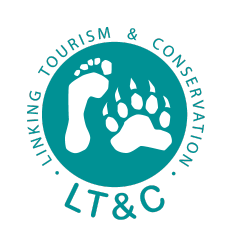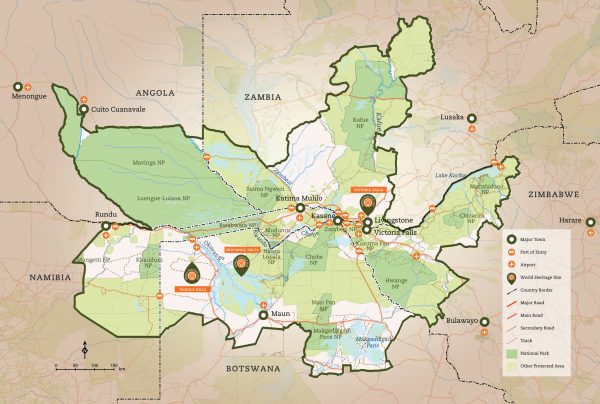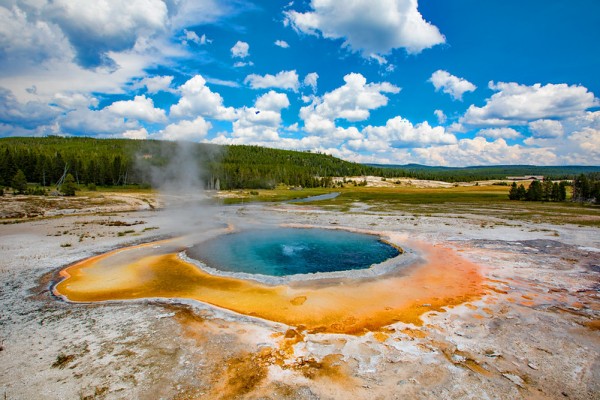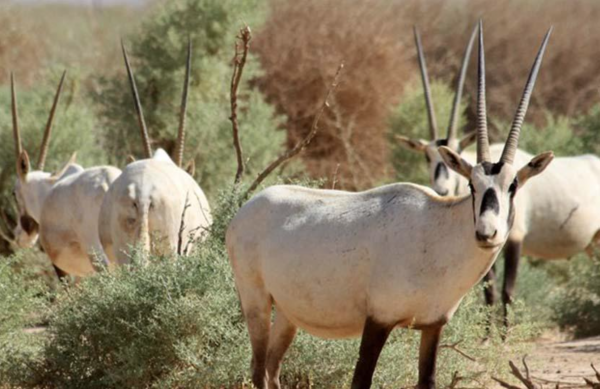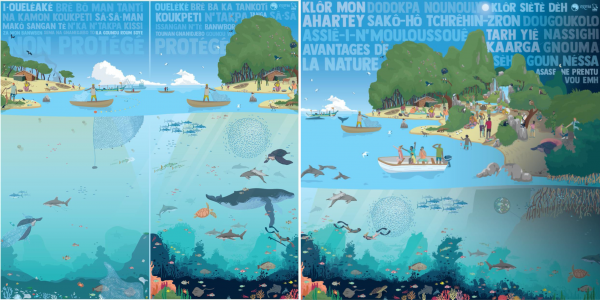Chumbe Island Coral Park: Exemplary ecotourism experiences in the world’s first Private Marine Park
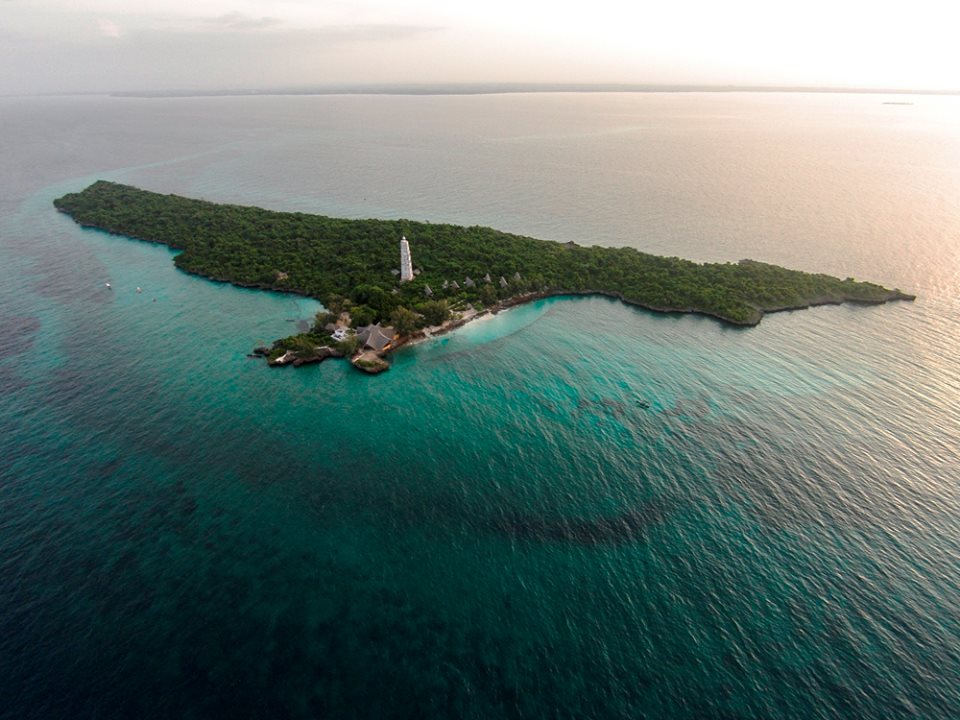
Chumbe Island Coral Park champions integrated eco-system based marine and forest conservation management sustainably financed through eco-tourism.
Chumbe Island Coral Park (CHICOP) in Zanzibar/Tanzania has created the first private Marine Park in the world, and the first managed Marine Protected Area in Tanzania. The objective of the investment was from the beginning to create a model of financially, ecologically and socially sustainable Marine Park management, where ecotourism supports conservation, research and environmental education for local people.
In 2008, CHICOP became a founding member of the flagship program of the Jochen Zeitz Foundation, the “Long Run Initiative“. This initiative promotes and certifies tourism enterprises, which directly manage, or significantly contribute to the management of a natural area of conservation value and demonstrate their commitment to sustainability through the 4Cs: Conservation, Community, Culture and Commerce. Performance and processes across the 4Cs are assessed through a certification scheme that awards destinations with the Global Ecosphere Retreat (GER) distinction for the highest level of sustainability. CHICOP become the first GER certified Long Run Destination in 2011, in recognition of promoting marine conservation in Tanzania and setting an example for genuine eco-tourism and environmental education and awareness creation.
See also how the Marine Conservation Institute values the Chumbe Island Coral Park: https://marine-conservation.org/blueparks/awardees/chumbe/ https://marine-conservation.org/blueparks/awardees/chumbe/
Why is this case a good example of linking tourism and conservation?
Chumbe Island Coral Park is a private investment in marine and forest conservation with a commercial component, the eco-lodge, which generates the income needed to run the park. Therefore, revenue generated from eco-tourism is reinvested in supporting park management and environmental education programs.
Benefits to local communities
Increased fish catches in the vicinity: The most direct benefits local people can have from a conservation project is the protection of their natural resources for sustainable livelihoods.
As a no-take zone, the Chumbe Reef Sanctuary has created a protected breeding ground for fish and other marine organisms that helps restock depleted fisheries and recovery of degraded fishing grounds, with the so-called “spill-over effect” of fish into adjacent fishing grounds, where fishermen have indeed reported increased catches.
Employment and career opportunities: The successful integration of environment and community is an important benchmark for eco-tourism. In order to realize this as a fully managed nature reserve, and also due to the particular eco-technologies installed, CHICOP’s operations are very labour-intensive. With only 7 rooms, CHICOP has probably the highest employee/room ratio of any tourism business in Tanzania, and three times the international average for eco-lodges. Wherever possible, CHICOP employs people from nearby village communities, though they have limited formal education and thus need much on-the-job-training. Of the 43 employees, 95% are Tanzanians, over two thirds from local communities, and 5% expatriates. In particular, former fishermen were recruited and trained as park rangers and stationed on the island. Gender considerations are also key, with women being given preference and currently forming 40% of the Chumbe workforce. It is important to note here that a third of the staff are directly involved in conservation management and education.
Market for local services, produce and handicraft: Since guests are offered typical Zanzibarian cuisine, which is a delicious blend of Asian, Arabic, African and European traditions, CHICOP creates a ready market for local produce, rather than imported foods. This not only reduces waste and pollution by minimizing packaging materials of industrially processed food but also raises awareness and pride for the local culture. Other income opportunities for local people include building materials for the eco-lodge, handicrafts sold in the boutique, the outsourcing of road and boat transport and craftsmen services during maintenance.
Sustainable financing for conservation: The sustainable management and promotion of key ecosystem services (sustainable fisheries and biodiversity conservation) for the Chumbe region has been widely recognized, including mention in the recent UN Secretary General’s report to the General Assembly on protection of coral reefs for sustainable livelihoods and development for Rio+20, which states: ‘‘A noted example for PES (Payment for Ecosystem Services) within the context of coral reefs habitat is the private, non-profit Chumbe Island Coral Park Ltd (CHICOP) in Tanzania…. Especially local fishermen benefit from the Reef Sanctuary, as research findings confirmed that fish inside the protected no-take zone travel out and increase their yields in the vicinity”.
Education Programs & Research
Public communication, education and awareness-raising on the vulnerability of the marine and forest ecosystems and the importance of sustainable eco-tourism are key pillars of CHICOP’s Environmental Education (EE) programs, which are regularly conducted on Chumbe Island and in Zanzibar. The programs offer free island excursions, training workshops and peer education sessions for students, teachers and community members. Based on the approach of ‘Education for Sustainable Development”, these programs help to close the gap between theoretical knowledge and practice, involve a different level of learners and seek solutions to environmental concerns that build on indigenous knowledge, culture and traditions. By the end of 2014, over 6300 school children and 1100 teachers had visited the island to experience the natural environment with its diverse ecosystems.
The experiential hands-on activities for schoolchildren and all visitors include guided snorkelling in the reef and walking along the forest trails using all senses such as sight, touch, hearing, taste and smell while ensuring that the teaching contents link up with the national school curricula. CHICOP also supports schools through environmental talks/seminars and helps organize environmental clubs, which are much encouraged by a popular competition for a sustainable future for schools, i.e. the Chumbe Challenge Environmental Award.
Political support & capacity building
CHICOP has also helped to raise conservation awareness and understanding of the legal and institutional requirements among government officials. The very innovative and unusual investment proposal of a privately established and managed Marine and Forest reserve required the involvement and approval of altogether seven Government departments. This took over four years to negotiate, followed by intense discussions on the Management Plans 1995-2016, which were developed by CHICOP consultants with wide stakeholder participation. This lengthy process has gained CHICOP political support and prepared the ground for improvements in the legal framework for marine conservation, environmental protection and management. Furthermore, an Advisory Committee that was established in the year 1995 includes village leaders, government officials, local academics and the CHICOP management, and meets at least twice per year for discussions about achievements and challenges.
Are there plans to further improve this example of tourism supporting conservation in the future?
Chumbe has been certified by The Long Run certification scheme and thus reached top standards of sustainability in the categories of the “4 C’s – Conservation, Community, Culture and Commerce and there is not much left that we can do better than maintaining standards in all categories, and to work on reaching long-term inter-generational sustainability.
However, as a bottom line, private protected areas need to maintain the necessary occupancy rate that secures sufficient income to fund park management and non-commercial programs. This can be challenging sometimes when the destination as a whole goes through or is wrongly perceived to be geographically close to, social unrest, election turmoil, terrorism incidents or much-publicized diseases. For example, though not occurring in East Africa, Ebola has dealt a major blow to East African and Tanzanian tourism, and this has been aggravated by terrorist attacks in Kenya.
How could this example be transferred to another protected area and knowledge be shared?
It can be done but needs a number of favourable conditions concerning the investment climate and the tourism sector in general and for private investment into conservation in particular.
From our work in Chumbe and through lessons learned accumulated over a period of 2 decades, we have established that private management of marine protected areas can be effective and economically viable, even in a challenging political environment. Investment in conservation and in environmentally sound technologies, as well as the employment of additional staff for park management and environmental education programs, raises costs considerably, making it difficult to compete with other tourism enterprises. Favourable conservation and investment policies and taxation would encourage such initiatives but are not available in Tanzania. Close cooperation with government agencies in establishing and protecting this reserve has enhanced the understanding of environmental issues among local and national authorities. In addition, the establishment of the Chumbe nature reserve has benefited local communities by generating income, employment, market for local produce, developing new work skills, and restocking commercial fish species in adjacent marine areas (spill-over). To avoid user conflicts, it is easier to preserve an area that is not used intensively for subsistence or other economic endeavours by local communities.
With the threats of climate change, marine conservation needs more political support from governments and the international conservation community, as well as recognition of the contributions that the private sector can make to both, effective conservation area management and livelihoods of local people on the ground. The long-term security of tenure and contracts, together with a favourable political, legal and institutional environment are needed to attract more private and community investment in marine conservation particularly in the developing world. The Chumbe Island Coral Park project looks forward to sustaining these and collaborates with LT&C in mainstreaming results, experiences and lessons for the achievement of sustainable coastal tourism around the world.
